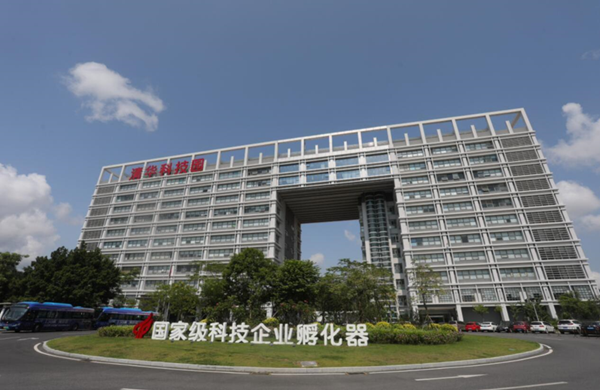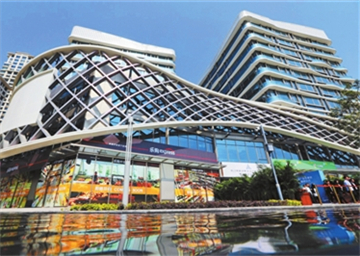City acts to reduce financial burdens related to virus
The Zhuhai government rolled out a series of measures on Feb 5 to help medium and small-sized enterprises (SMEs) get through the on-going novel coronavirus (2019-nCoV) outbreak by lowering the impact on their businesses.
Enterprises that delay their migrant employees' return from Hubei Province and fall short of labor from doing so can apply for subsidies of 500 yuan ($72) for each temporary replacement covered by social insurance until the full-time workers are back. The total amount over three months beginning Feb 5 won't exceed 1 million yuan ($143,400) for a single enterprise.
Companies are encouraged to conduct online job training themselves or work with institutions. Each attendee will be granted 30 yuan ($4) for each class that lasts no less than 45 minutes. The maximum subsidy for a single personnel is 1,000 yuan ($143).
Projects related to 2019-nCoV prevention and control and supported by the Ministry of Science & Technology/Department of Science & Technology of Guangdong Province will be additionally subsidized 50 percent of the national/provincial subsidy to a limit of 2 million yuan ($287,000).
Up to 1 million yuan is available for a single project engaged in 2019-nCoV prevention and control R&D or producing relevant drugs and diagnostic equipment.
Projects related to 2019-nCoV prevention and control, especially in epidemic prevention, treatment, and technology application and promotion, will be included in the Social Development Plan and be entitled to a maximum subsidy of 500,000 yuan ($71,700).

Tsinghua Science Park at the Zhuhai National Hi-Tech Industrial Development Zone (Tangjiawan) [Photo by Zhong Fan / File photo]
Zhuhai will assist enterprise engaged in epidemic prevention and control in applying for re-lending from the People's Bank of China, with subsidies on interest payment from the central government.
Enterprises that have received loans from local banks will be incorporated into Zhuhai's "Four-in-One" finance platform, and be granted up to one year's interest subsidy amounting to half of their loan prime rate when the contract was signed. The maximum subsidy for each will not exceed 500,000 yuan.
Greatly impacted SMEs that carry loans, but fit the city's industrial development trajectory or play a significant role in ensuring livelihood or 2019-nCoV medical supplies, will be included into Zhuhai's "Four-in-One" program, and be granted 50 percent government risk-sharing to a limit of 5 million yuan ($717,000).
Those that use Zhuhai bridge loans will be charged only 80 percent of the fee, and guaranteed loans obtained from non-commercial financial guarantee institutions will be entitled to a service charge of no more than 1 percent.
Financial institutions will adjust the housing mortgage and credit card repayment arrangement and postpone deadlines for people participating in epidemic prevention and control or who are hospitalized, isolated or being observed for infection, or losing sources of income due to the epidemic. Insurance compensation of epidemic-affected clients will be prioritized.
Enterprises that lease State-owned premises for business use will be exempted from rent for two months and offered a 50 percent discount for one month. Other property owners are encouraged to reduce rent. Sci-tech incubators that reduce rent for SMEs during the epidemic will be given policy support in annual operation evaluation.
Taxpayers who face financial difficulties due to the epidemic are eligible for reduced property and urban land use taxes.
Cultural-tourism, catering, accommodation, wholesale and retail, logistics and transport enterprises above a designated size can include their direct loss and extra expenses caused by the epidemic in cost accounting.
Hotels designated as temporary shelters for epidemic prevention and control can receive a 50 percent reduction on their water, electricity, and gas costs. Taxi enterprises are encouraged to reduce lease fees of taxi drivers and will be subsidized in payable tax.
Eligible enterprises unable to declare or pay their taxes on time due to the epidemic will be granted extensions. Those unable to pay social insurance on time may delay their payment until three months after the epidemic ends without being fined for lateness.
Meanwhile, enterprises that cannot register and declare their social insurance payment or claim social insurance benefits may do so within three months after the epidemic ends. The benefits won't be impacted during the continuance period.
Deposit of epidemic-affected travel agencies will be entirely or partially returned and replaced with bank guarantees.
Enterprises unable to fulfill their international trade contracts on schedule can apply for Certificates of Force Majeure online from the China Council for the Promotion of International Trade Zhuhai Sub-council. The export credit insurance compensation for companies that haven't received payment for exports will be prioritized.
Imported materials purchased by health authorities for epidemic prevention and control will be exempted from tariffs and guided through green channels. Imported drugs and medical equipment can be claimed immediately upon arrival.
Moreover, banks will prioritize handling affairs related to 2019-nCoV-related imports and donations, with a green channel set up for cross-border RMB business and simplified import payment procedures.
Financial institutions are allowed to handle 2019-nCoV-related affairs before filing at the Zhuhai Central Sub-branch of the People's Bank of China and Zhuhai Central Sub-branch of the State Administration of Foreign Exchange.
Emergency public legal services will be offered to enterprises having disputes related to contract fulfilment and labor-capital relationships due to the epidemic.
The policies are applicable to 2019-nCoV-impacted SMEs that have fully carried out epidemic prevention and control measures and have laid off employees at a minimal level.



